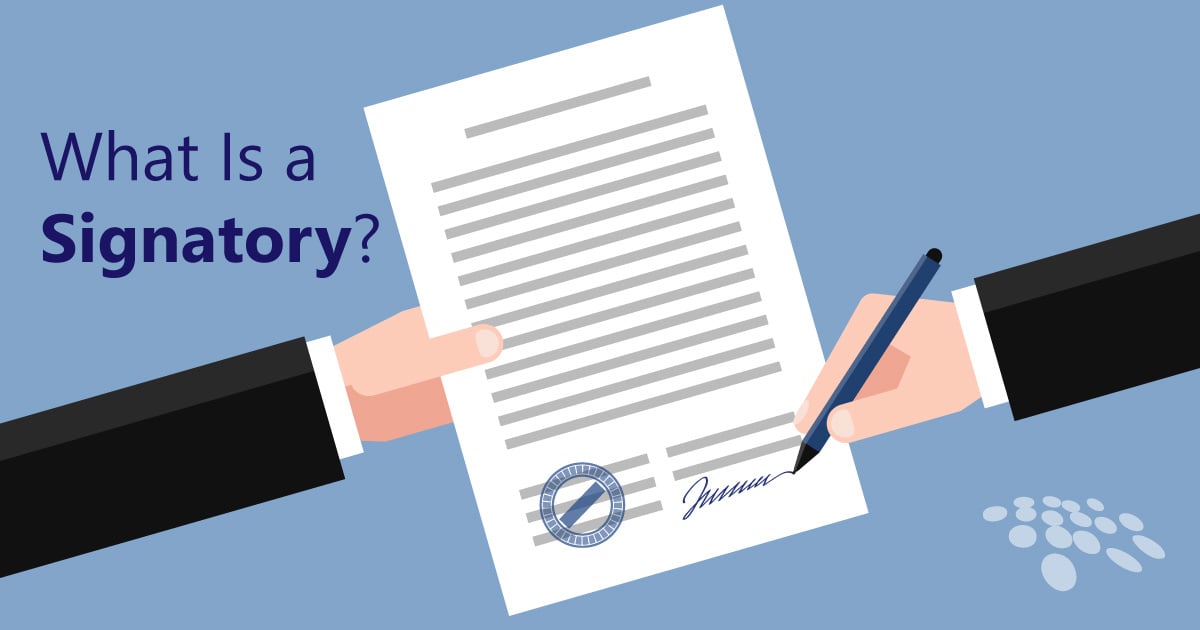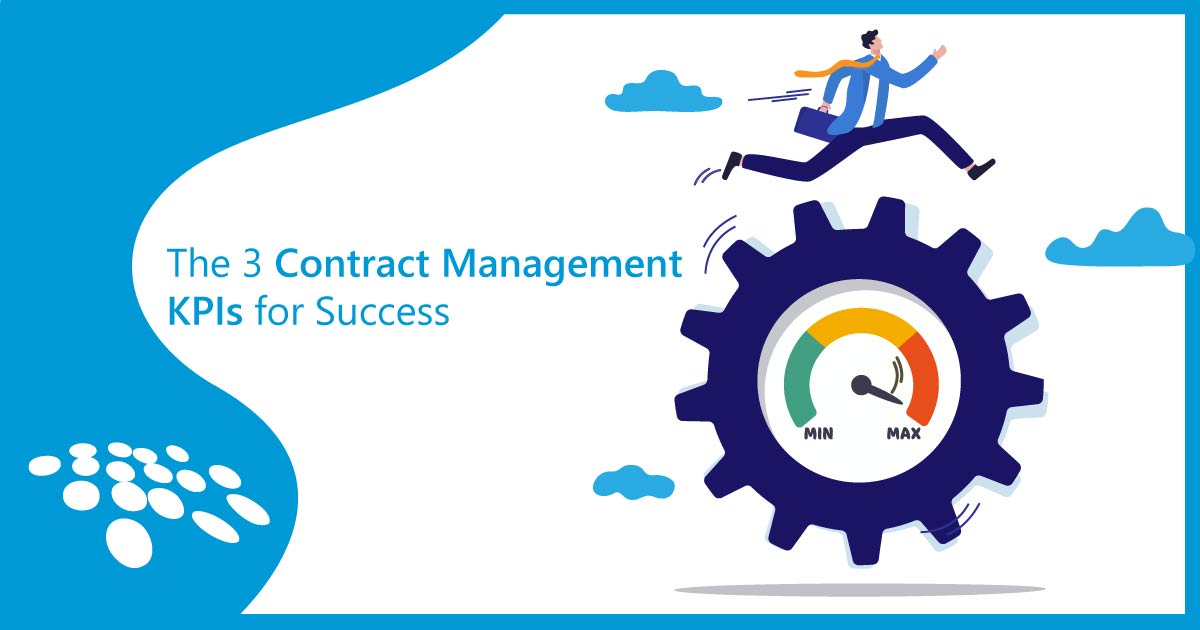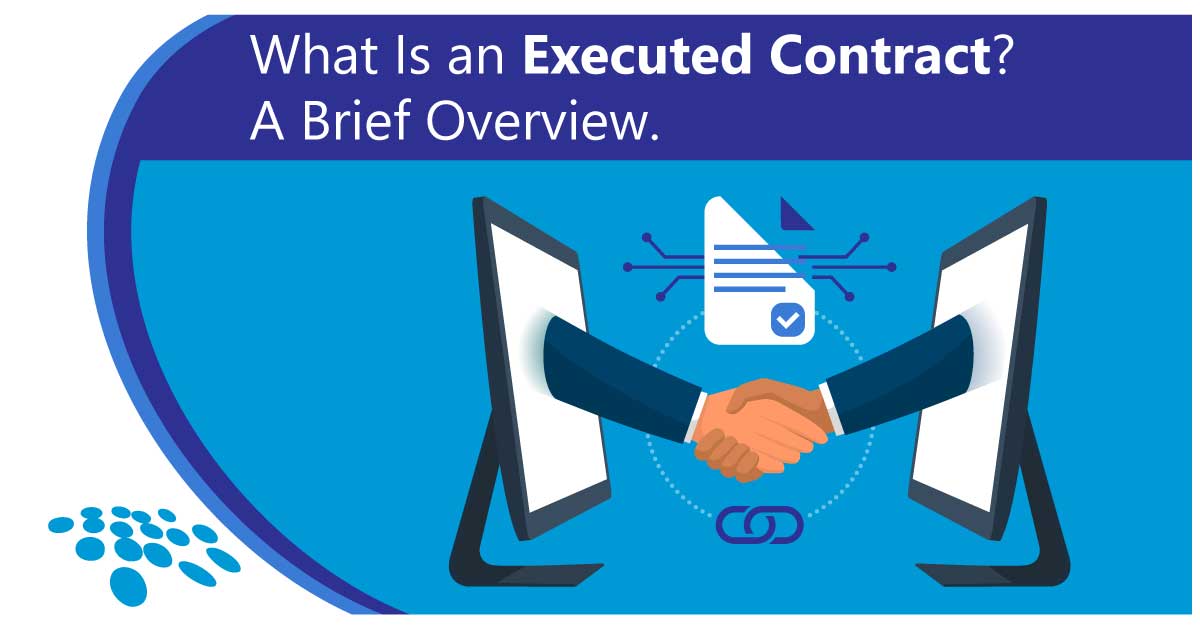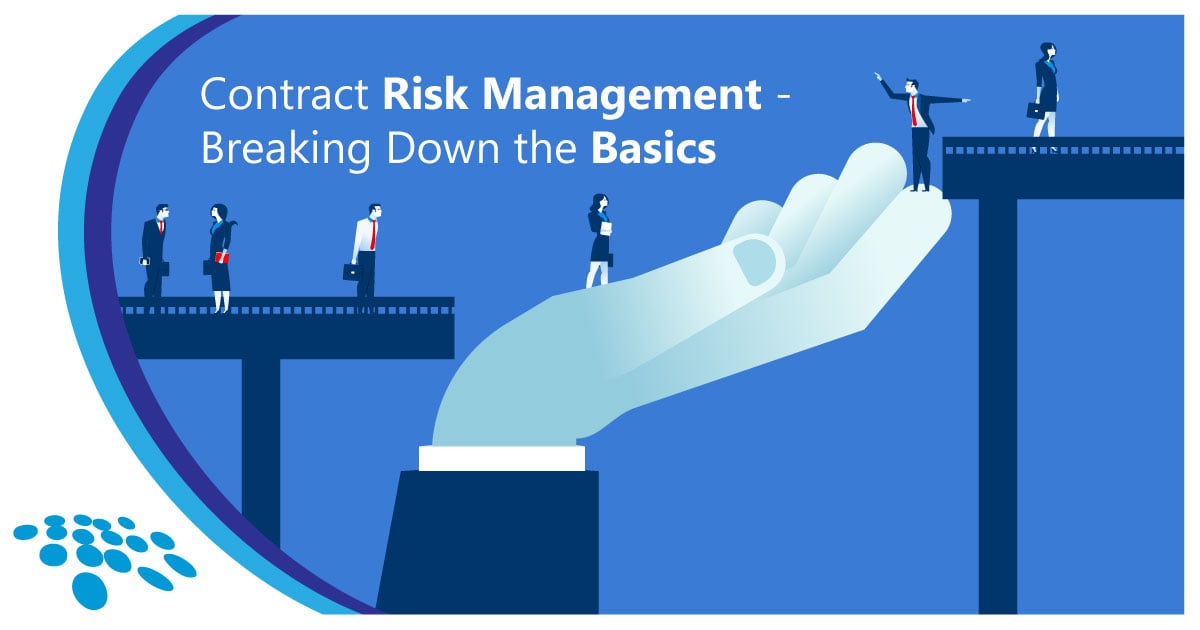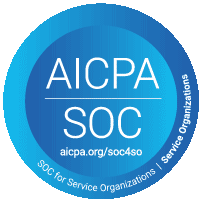
What is a signatory? Have you ever come across the term in a contract or other legal document? In simple terms, a signatory is someone who signs on the dotted line to formally indicate their commitment or agreement to a contract. However, a contract signer's responsibilities can vary depending on the context of a contract. This post will delve into the definition of a signatory, explain key aspects of the role, outline the responsibilities, explore the types of signatory, and reveal how to make the job of a signatory easier and more streamlined.
What Is a Signatory?
A signatory is an individual, organization, government body, or other entity that signs a contract, agreement, or other legal document to signify consent, commitment, agreement, and/or approval. Signers from multiple parties participate in approving and signing the document.
A signatory is often a member of an organization with signing authority and the power to bind the entity to a contract. With their signature, the signatory becomes legally bound to the terms and conditions of a contract - promising to fulfill obligations outlined in the agreement. The signature process validates the agreement and signifies these commitments.
3 Types of Signatories
Signatories can be categorized based on who they represent with their signatures.
Individual signatories sign contracts and agreements on their own behalf. This type of signatory includes those who sign employment contracts, lease agreements, loan agreements, and release forms.
Corporate signatories serve as authorized representatives for an organization. These usually include executives or directors. Common contract types for corporate signers include supply chain agreements, NDAs, purchase agreements, and consulting agreements.
Finally, government signatories represent a local, state, or federal governmental body. Often encountered in the context of international agreements, treaties, or work with government contractors, government signers signify the government body or government's commitment to terms outlined in legal documents such as treaties, fixed-price contracts, cost-reimbursement contracts, T&M contracts, and IDIQ contracts.
Responsibilities of a Signatory
Signer responsibilities are essential and should not be taken lightly.
First off, signatories are responsible for thoroughly reviewing and comprehending the entirety of a contract before signing. Careful contract review helps avoid potential risks and promotes a mutual understanding of contract terms and conditions. Additionally, contract signers are tasked with ensuring compliance and adherence to various laws and regulations.
After a document is signed, the signer and its party are obligated to fulfill the duties and responsibilities explicitly defined within the agreement. Finally, the signer is often responsible for maintaining a visible and accurate audit trail of records by keeping copies of the signed contract for potential need and future reference.
Signatories & Contract Management Software
Contract management software offers numerous helpful features to contract signatories, streamlining signing and offering heightened efficiency and transparency.
With contract management software, signers can execute signature workflows while quickly reviewing and executing contracts. This eliminates the need for printing, scanning, or mailing contracts; the process is entirely digitized. Faster turnaround speeds up the entire contract lifecycle.
All contracts and related documents are stored in an easily searchable and secure contract repository so that they are easily accessible to all authorized resources and provide complete visibility and transparency for the entire contract lifecycle - including signing. Signers can easily report on contract status, review previous contract versions, and see who has access to a document.
Intelligent workflow automation with in-system notifications and email alerts keeps signers aware of changes, tasks, and deadlines. Moreover, signers and teams can collaborate in one central location with tracked redlining, comments, and messages. Permissions can be configured so that only necessary resources have access to contracts for signing.
Pre-approved templates and clauses with auto-redlining make it so that only the best contract language is pushed through before the agreement is signed. Version control virtually ensures that the correct and most up-to-date contract versions are pushed through to approvals and signature processes.
Finally, leading contract management software offers digital signature attestation. Digital signature solutions leverage certificate-based digital identification to validate document integrity. These certificates are often issued by a certificate authority (or CA) and provide proof of signing with trusted time stamps. Encryption binds a digital certificate associated with a signature to the corresponding document.
Key Takeaway
Now that you know what contract signatories are, are aware of their responsibilities, understand the types of contract signers, and know which contract lifecycle management tools you can use for the job, it's time to sign and manage contracts better with the latest and greatest legal technology available to you.
The best solution for those signing and managing contracts is CobbleStone Contract Insight®.
Book a free demo of CobbleStone® today to keep the signing process efficient, centralized, and secure.
*Legal Disclaimer: This article is not legal advice. The content of this article is for general informational and educational purposes only. The information on this website may not present the most up-to-date legal information. Readers should contact their attorney for legal advice regarding any particular legal matter.












